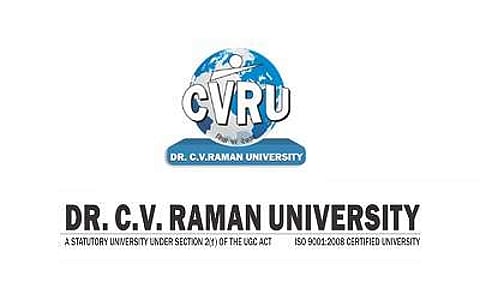

A Raipur girl considers herself lucky for not getting arrested in Bangalore after a complaint against her was lodged with the police by an institution where she had applied for a job. Her B.Ed degree, issued by the private C V Raman University in Bilaspur, about 140 km from Raipur, was found to be fake.
The Zila panchayats of Bilaspur, Raigarh and Mungeli districts of Chhattisgarh have rejected the candidature of several students after their mark sheets were disowned by the university, though the students claimed they had done their courses there.
The CV Raman University, facing serious charges of ‘irregularities and corruption’, remains unfazed.
That something was wrong had been flagged in May 2016, when a principal secretary to the Gujarat government shot off a letter to his counterpart in Chhattisgarh highlighting the “violation” of University Grants Commission (UGC) norms by an Ahmedabad-based institute associated with C V Raman University. The letter cited fake courses being offered and huge fees charged through its distance learning campus.
The university allegedly gave away degrees and diplomas for courses it was not authorised to offer, putting at risk the careers of thousands of students. The issue rocked the Chhattisgarh Assembly in March 2017.
The university was set up on November 3, 2006, by a society, AISECT, created with the aim of bridging the skill and information and communications technology gap between urban and rural India. Later on, AISECT was allegedly converted into sort of parallel "private limited entity" to offer several degrees and diplomas of the University.
AISECT has a pan-India presence, with 23,000 skill providers across 29 states and three Union territories, besides 10 state offices and 30 regional offices, claims the university’s official portal.
Santosh Choubey, the university’s chancellor, rejected the charges. "All these allegations are baseless and nothing more than stupidity. The high court has granted us a stay on the FIR filed against us," the chancellor said.
Bilaspur police, however, denied that any stay had been given by the court. "The FIR has been lodged in June this year against former registrar Shailesh Pandey, present registrar Gaurav Shukla, assistant registrar Niraj Kashyap, and Santosh Choubey, Chancellor and AISECT CEO," Bilaspur superintendent of police Arif Sheikh told The Sunday Standard.
All AISECT centres are run through a franchise offered by the university. Usually, private computer centres are operated under the AISECT franchise. It is claimed that an amount ranging from Rs 50,000 to over Rs 1 lakh is paid as a franchise fee to the university to run thousands of such centres, most of which reportedly function from just two or three rooms.
"The entire operation of AISECT was illegal and carried out in violation of regulations of the University Grants Commission (UGC), which don’t allow private universities to offer degree and diploma courses beyond their main campus, as was being done through AISECT. The UGC, under the RTI, revealed it. The university is engaged in a racket of selling degrees through thousands of AISECT branches spread across India," said Premendra Manikpuri, who was once associated with the university through a government project and “exposed” its practices.
When repeated complaints by Manikpuri to government officials and even the governor didn’t yield any result, he lodged an FIR, producing evidence he had collected through RTI queries that "exposed the fraudulent" practices of the university. The FIR was lodged under Section 13 (1) of the prevention of Corruption Act, 1988, under for obtaining financial advantage without public interest and abusing position as a public servant.
Over a dozen complaints have reportedly been lodged against the university with the Chhattisgarh Private University Regulatory Commission.
"We forward the complaints to sections concerned for appropriate action," said Anjani Shukla, the chair of the commission. Many students claimed that the commission had only recommended action though it has the power to take strict punitive measures against the university.
The UGC chairman, Prof D P Singh, didn’t answer calls and a message sent to seek his response to the allegation that UGC had failed to act against the university.
The police are awaiting appropriate responses to questions sent to the university. "We have sent queries on 20 points, but we haven’t received a satisfactory reply so far. There is no stay on the FIR and we will be rigorously pursuing our probe," investigating officer Nasar Siddiqui told the Sunday Standard.
